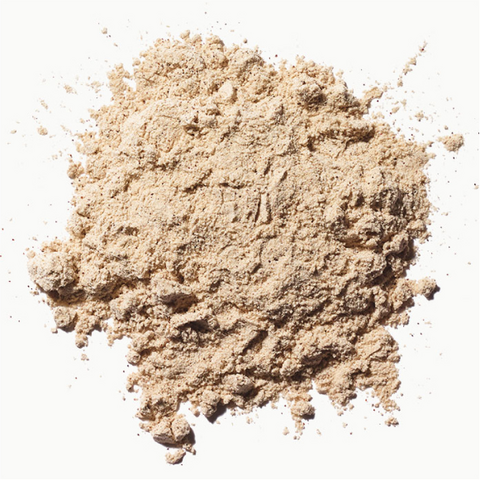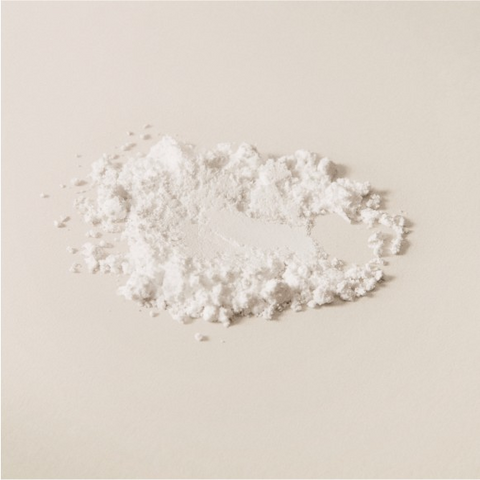When it comes to aging and skin health, collagen can be a game-changer. Why? To fully understand how Collagen plays a role in the look, touch, and feel of skin as we age, it’s important to first look at what Collagen is and the role it plays in the body.
What is Collagen?
Collagen is a protein found throughout your body - it’s actually the body’s most plentiful protein and there are five main types of collagen:
- Type I
- Type II
- Type III
- Type IV
- Type V
Each type of collagen has a different function, including growing new cells, forming tissues, and even protecting your organs. In addition to providing support and structure to your skin, collagen also helps to form the structure of your bones, muscles, and cartilage.
The body produces all this collagen on its own, but factors like your age and the foods you eat can affect both healthy collagen production and maintenance. To shed light on the different types of collagen and how you can boost your body’s supply, let’s examine collagen a little closer.
How Collagen Proteins Function
You can find proteins like collagen in every cell of the human body. Different proteins perform different functions for your body, and the role of collagen is particularly unique. To fully understand collagen’s role in the body it’s helpful to first understand how proteins function.
Proteins are like your body’s workhorses. These crucial molecules help the body to:
- Fight harmful bacteria and viruses
- Support cell growth and regeneration
- Transmit signals from the brain to receiving organs
- Transport molecules and nutrients throughout the body
Amino acids form the building blocks of proteins. These organic compounds enable vital proteins to carry out their important bodily functions.
Collagen’s skin-replenishing properties come from three main amino acids:
- Proline
- Glycine
- Hydroxyproline
Through the synthesis of these three amino acids, the collagen protein can function like a mattress’s springs—shaping the body while maintaining skin elasticity and bounce.
Collagen’s Roles
The ways collagen supports your body can vary depending on which body part or organ you look at. But as a whole, collagen performs five key roles:
- Helps replace dead skin cells – Your body’s skin cells are in a perpetual process of decay, rebirth, and regrowth. To enable this process, collagen helps the body replace dead skin cells to make room for new active cells.
- Give structure and elasticity to the skin – Collagen plays a pivotal role in strengthening and structuring the skin, which means that having more collagen can improve the skin’s elasticity. Highly elastic skin is beneficial for several reasons, including helping with wrinkle prevention and making skin less susceptible to damage.
- Covers the organs – Collagen plays a vital role in protecting the organs by covering them. Without collagen’s protective shield, the organs would be more exposed to internal and external bodily threats.
- Helps the blood to clot – Blood clotting prevents you from losing too much blood when your body is injured. It also prevents harmful bacteria from entering exposed wounds. Collagen helps your blood clot by attracting platelets to damaged blood vessels.
- Helps fibroblasts form – Fibroblasts are cells that help the body produce connective tissue. They are essential for cell regrowth and maintenance. Collagen can enable the formation of fibroblasts, assisting in the growth of skin cells.
Where is Collagen Found?
Since collagen is a protein tasked with structuring and supporting the body, you will primarily find it in the body’s structural components. These include:
- Muscles
- Bones
- Ligaments
- Cartilage
- Tendons
- Connective tissue
Collagen is also in your blood and intestinal lining. In these parts of your body, collagen is an essential part of cellular communication and repair.
Five Main Types of Collagen
As we mentioned before, the majority of your body’s collagen is comprised of five main types:
Type I
Type I collagen is primarily responsible for helping structure the body’s skin, bones, and cartilage. It is by far the body’s most produced collagen type. If you read or hear people talking about collagen in the context of healthy hair, skin, or nails, they are most often referring to Type 1 collagen.
Type I collagen also helps improve the skin’s elasticity and form the structure of your teeth. Type I collagen’s other roles include:
- Bone tissue engineering
- Bone strength enhancement
- Cellular regrowth and regeneration
Type II
Type II collagen is found almost entirely in the cartilage of your joints, like knees, elbows, hips, and shoulders. It is similar to Type I collagen in its ability to strengthen connective tissues. As a result, Type 2 collagen is essential for your body’s mobility.
The primary benefits of Type II collagen include:
- Improves joint functioning – Type II collagen is particularly important for the structure of your joints. This is because Type II collagen supports the cartilage between joints, which enables your range of movement, helping to prevent joint pain.
- Helps athletic performance – The amino acids that form Type II collagen also help to form creatine. A powerful organic compound, creatine helps the body increase energy and muscle growth.
- Promotes cartilage health – Although cartilage primarily covers your joints, it also creates a good portion of your nose and ears. Type II collagen promotes cartilage health and helps give shape to these two essential organs.
Given Type II collagen’s cartilage-strengthening capabilities, having plenty of this collagen type can ensure joint health, aiding aid those with joint diseases and conditions, including:
- Osteoarthritis
- Rheumatoid arthritis
- Morning stiffness
- Joint inflammation
Type III
Type III collagen is secreted by fibroblasts, the cells that help to form the reticular fibers and connective tissue in your skin. These collagen fibers can help promote skin health by improving hydration and elasticity. It can also help improve gut and arterial health, as well as strengthen the lining of your intestines.
Although Type III collagen only makes up 5–20% of your body’s collagen, this type plays a significant part in blood clotting and wound healing. Type III collagen also helps with:
- Cell adhesion
- Tissue development
- Gene expression
- Signal transmissions
Type IV
Type IV collagen is found primarily within your skin’s basement membrane zone (BMZ).
The BMZ is a layer of skin that connects the epidermis (your skin’s top layer) to the dermis (your middle layer of skin). The BMZ also allows for the transmission of nutrients between the epidermis and dermis. Without Type IV collagen’s stabilizing power, the epidermal-dermal relationship wouldn’t be possible.
Thanks to its location in the BMZ, Type IV collagen is responsible for skin strength, regeneration, and skin cell stabilization.
Type IV collagen can also help:
- Heal wounds
- Shape tissue and organs
- Enhance tissue and organ functionality
Type V
Type V collagen is the body’s least prevalent collagen type - however this protein still plays an important role in the body’s cellular functions. Type V collagen specifically helps with:
- Eye health and development – Type V collagen contributes to several eye components including the cornea, the sclera, and the vitreous humor.
- The placenta – During pregnancy, Type V collagen aids in the development of a healthy placenta for the fetus.
- Hair follicles – Although Type V collagen doesn’t constitute the makeup of hair follicles, it does coat the area around the follicles.
- Insulin production – To secrete insulin, the pancreas relies on Islet cells. Type V collagen supports these insulin-mediating cells.
How to Add Collagen to Your Routine
As we’ve discussed above, your body produces and stores many different types of collagen on its own - primarily Type I and II. These collagen types are mostly found in the bones, muscles, and cartilage.
As we age, our body’s collagen stores consistently decline. After the age of 20, we lose about 1% of our collagen every year, leading to collagen deficiency.
If you’re seeking to boost the levels of collagen within your body to achieve healthier skin, there are a few things you can do. First, start with supporting collagen’s building blocks: amino acids.
#1 Boost Your Natural Collagen
Your body requires a variety of vitamins and nutrients to keep up the production of the amino acids that make up collagen. To support these collagen-building amino acids, it may be helpful to increase your intake of:
- Vitamin C – Vitamin C is essential to amino acid production. Eating more fruits and vegetables can increase your Vitamin C levels. If you don’t consume enough through the foods you eat, you can also consider taking a Vitamin C supplement.
- Zinc – The mineral Zinc can also support amino acid production. Beans, nuts, tofu, and mushrooms are all great sources of Zinc.
#2 Avoid Collagen-Damaging Habits
While boosting your body’s collagen production is great, it’s equally important to avoid habits or environments that can deplete the collagen you already have. Although some of your collagen production may decrease naturally as you age, you can also help preserve your levels by:
- Protecting your skin from the sun – When your skin is exposed to too much ultraviolet light from the sun, it can cause the collagen in your skin to degrade. You can avoid this by seeking shade when outside, wearing SPF sunscreen , and using protective clothing.
- Eating well – Consumption of too many sugars and refined carbohydrates can damage the proteins in your body, including collagen. Instead, focus on the foods that can boost your natural collagen production - especially those containing Vitamin C and Zinc.
#3 Take Collagen-Boosting Supplements
Collagen supplements can help support your body’s collagen production and maintain healthy collagen levels. Collagen supplements range from marine collagen, specifically fish collagen, to bovine collagen. The most common supplements include:
- Ingestible collagen powder
- Topically-applied collagen cream
When choosing your collagen supplementation, note that some forms may be more effective than others. Recent studies have shown that your skin may not absorb topical collagen creams as well because the collagen peptides are too large to penetrate.
However, the same studies suggest that your body can absorb ingestible forms of collagen fairly well, boosting your body’s collagen from within. A Collagen molecule that has have been broken down into smaller piece is, known as hydrolyzed collagen or collagen hydrolysate, and it may have even greater bioavailability and absorption.
Like with all supplements, you’ll also want to find out how much you can safely take. Studies have shown that you can safely consume between 2.5–15 grams of collagen. That said, it’s also important to follow the instructions on the label of your collagen supplements.
For a collagen supplement that is sustainably sourced and potently dosed for optimal benefits, we’ve got you covered.
Our vegan collagen powder, Collagen Protect, uses the following ingredients to build and support your body’s natural collagen production:
- Silver ear mushrooms – Popular in China and Japan, silver ear mushrooms can help renew collagen levels and hydrate the skin. Silver ear mushrooms contain high amounts of collagen and due to their unique cellular matrix, can help your skin retain moisture.
- Tocos – Tocos are rice bran solubles that contain Vitamin E and other antioxidants. The nutrients in this superfood can help boost collagen production levels.
- Hyaluronic acid – Our Hyaluronic Acid helps support collagen synthesis, reduce the appearance of fine lines, and hydrate your entire body from within.
To receive the full benefits of Collagen Protect, simply add one tablespoon to your coffee or smoothie. This daily habit can help your body:
- Preserve natural collagen production
- Hydrate your skin to improve elasticity
- Lessen fine lines and wrinkles

Give Your Body the Collagen Support It Needs
As your body’s most abundant protein, collagen plays an integral role in supporting skin health, cell development, and bone strength. Although your body has more of some types of collagen than others, producing enough collagen of all types may be essential for overall health.
Eating plenty of foods rich in Vitamin C and Zinc is an excellent place to start. To help your body preserve existing collagen and aid its production even further, you can seek out high quality supplements that provide additional supportive nutrients.
Sources:
MedlinePlus. Anatomical Record. Type V Collagen in Health, Disease, and Fibrosis.
British Heart Foundation. How collagen helps the blood to clot.
Cleveland Clinic. Collagen.
Cleveland Clinic. The Best Way You Can Get More Collagen.
Dermatology Practical and Conceptual. Collagen Supplements for Aging and Wrinkles: A Paradigm Shift in the Fields of Dermatology and Cosmetics.
Gene. Type III collagen (COL3A1): Gene and protein structure, tissue distribution, and associated diseases.
International Journal of Clinical Pharmacology Research. Effects of orally administered undenatured type II collagen against arthritic inflammatory diseases: a mechanistic exploration.
North American Journal of Medical Science. Collagen IV in Normal Skin and in Pathological Processes.
ScienceDirect. Collagen Type 1.
ScienceDirect. Collagen Type 3.
StatPearls. Biochemistry, Collagen Synthesis.
International Journal of Dermatology. Effects of hydrolyzed collagen supplementation on skin aging: a systematic review and meta-analysis.
Scientific American. Why does skin wrinkle with age? What is the best way to slow or prevent this process?















